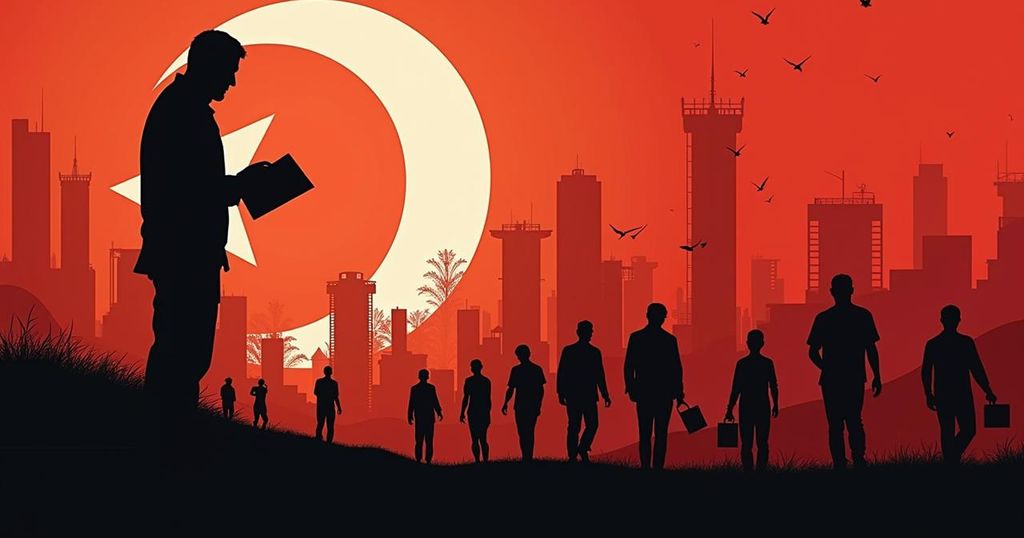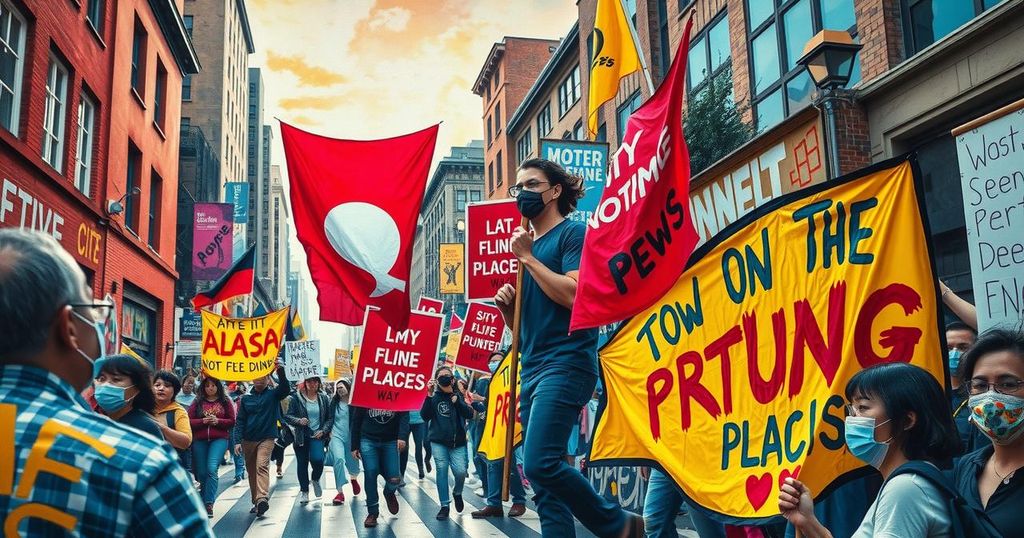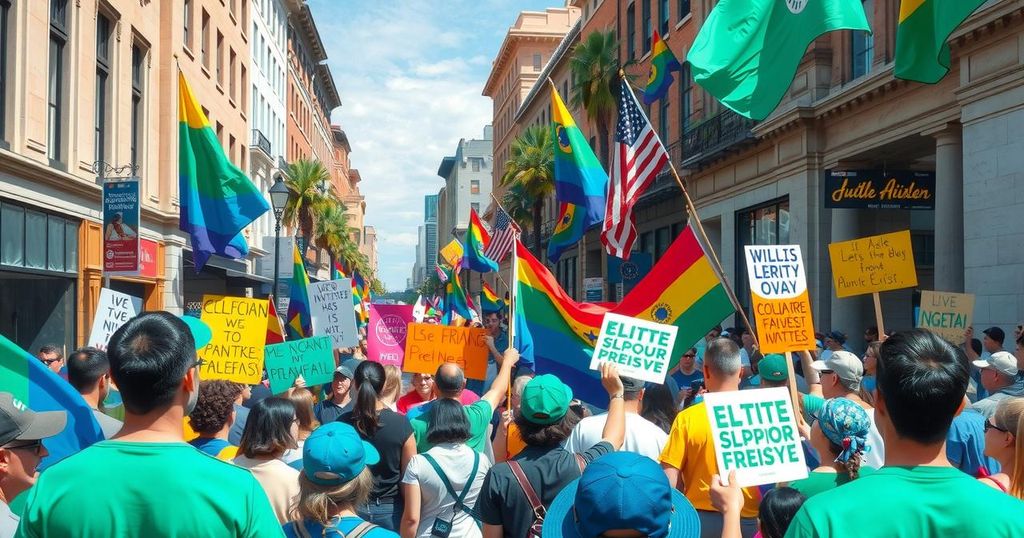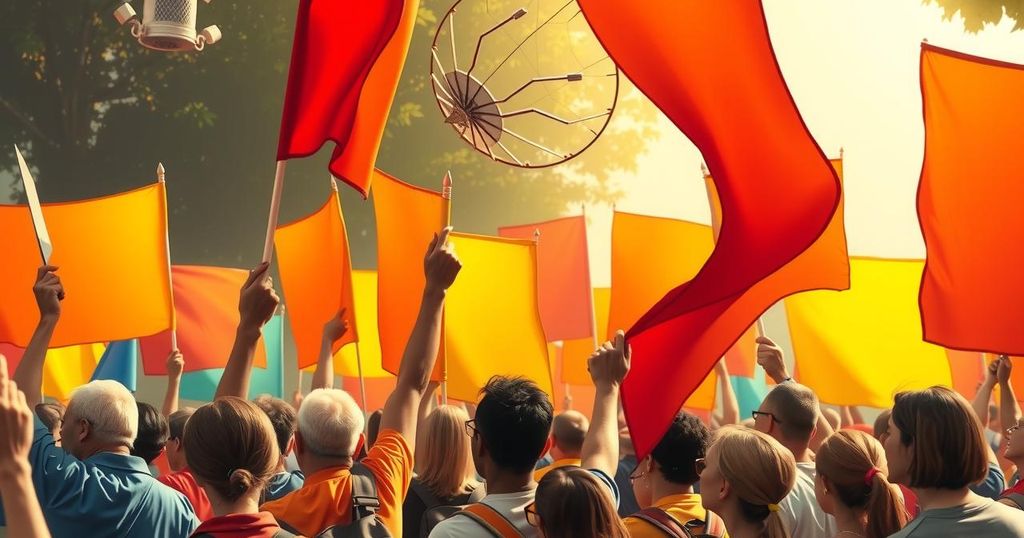Tunisia Election: The Impact of Authoritarian Rule on Democratic Processes
The upcoming presidential election in Tunisia, scheduled for October 6, is overshadowed by the authoritarian rule of President Kais Saied, whose regime has systematically dismantled democratic processes since his coup in 2021. The absence of a lively electoral campaign and the increased repression of opposition voices, such as the imprisonment of opposition candidate Ayachi Zammel, highlight the regime’s desperation to maintain control. Despite these challenges, public dissent is on the rise, prompting calls for participation in the election as a means to challenge Saied’s authority and restore democratic governance.
In the lead-up to the presidential election in Tunisia scheduled for Sunday, October 6, one might notice an alarming absence of the vibrant political atmosphere that characterized previous electoral cycles. Gone are the public rallies, extensive media debates, and an array of candidates, replaced instead by an air of resignation and fear among the populace. President Kais Saied, who ascended to his position in 2019, has effectively neutralized the democratic processes that once defined Tunisian politics, culminating in a chilling environment marked by oppression and state-sanctioned repression. Since Saied’s coup on July 25, 2021, there has been a systematic dismantling of democratic institutions in Tunisia, causing significant public disenchantment. Saied’s rise to power was initially fueled by a commitment to the ideals of the Tunisian revolution, yet his actions have belied this promise. Recent events have seen an intensification of arrests among political opponents, including key figures across the political landscape, such as Rached Ghannouchi, the former speaker of parliament. Saied’s overwhelming need to crush dissent is evident in his suite of draconian measures, from restricting media freedoms to criminalizing opposition voices. As the election approaches, the lack of campaigning is overshadowed by escalating repression, which includes the recent imprisonment of Ayachi Zammel, the leading opposition candidate. His treatment exemplifies the regime’s desperation to maintain a façade of legitimacy while simultaneously delegitimizing any substantial opposition. Those wishing to contest the presidency have faced considerable obstacles, with many being disqualified or imprisoned on dubious charges. Moreover, the electoral commission, now heavily influenced by Saied, has obstructed any attempts to ensure fair electoral processes, resulting in a deeply flawed electoral framework. Despite the disheartening political climate, there has been a resurgence of public anger and opposition to Saied’s rule, evidenced by spontaneous protests across Tunisian cities. Citizens are wrestling with disillusionment over economic instability, rising unemployment, and an erosion of civil liberties that Saied has perpetuated under the guise of governance. Activists advocate for participation in the upcoming election as a critical opportunity to challenge Saied’s authority, demonstrating resilience against his authoritarian regime. While the current political landscape in Tunisia is hauntingly reminiscent of a dark chapter in its history, the election is shaping into a reaffirmation of collective resistance against oppression. The caused skepticism surrounding the electoral process raises profound questions about the future of democracy in Tunisia, as the populace confronts an uncertain landscape marked by Saied’s increasingly autocratic grip on power. Ultimately, whether through a decisive electoral outcome or widespread protests, the people of Tunisia are determined to reclaim their agency and advocate for a return to a democratic society. They recognize the gravity of the upcoming election, not merely as a procedural formality but as a catalyst to restore democratic principles and address the myriad crises facing their country. Although the road ahead remains fraught with challenges, the unwavering spirit of the Tunisian people signals a potential turning point in their quest for true democracy and accountability from their leadership.
The political landscape in Tunisia has experienced significant upheaval since the 2011 revolution, which culminated in the ousting of long-standing dictator Zine El Abidine Ben Ali. This event ushered in a period of democratic transition, characterized by political freedoms and varied electoral participation. However, the rise of President Kais Saied, following his election in 2019, marked a regression in democracy. His subsequent coup in July 2021 led to the erosion of democratic institutions, manifesting in widespread human rights violations, suppression of free speech, and the imprisonment of political opponents. The upcoming election is deeply significant, as it underscores the tension between authoritarianism and the public’s enduring aspiration for democratic governance amid a backdrop of economic turmoil and social discontent.
In summary, the current electoral context in Tunisia serves as a litmus test for the resilience of democracy in the nation. Kais Saied’s authoritarian methods have stifled political opposition and undermined democratic processes, leading to a widespread atmosphere of fear and disillusionment. However, the persistent public dissatisfaction and the manifestation of collective action hint at a growing resolve among Tunisians to challenge the status quo. As the election looms, the outcome will be pivotal in determining whether Tunisia can navigate its way back to a governance model that genuinely reflects the will of its people or if it will continue down a path of repression and authoritarianism.
Original Source: www.middleeasteye.net




Post Comment